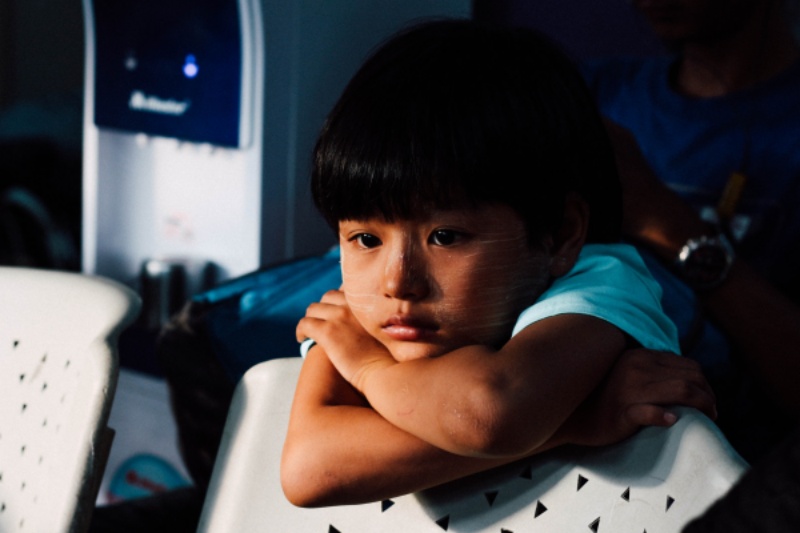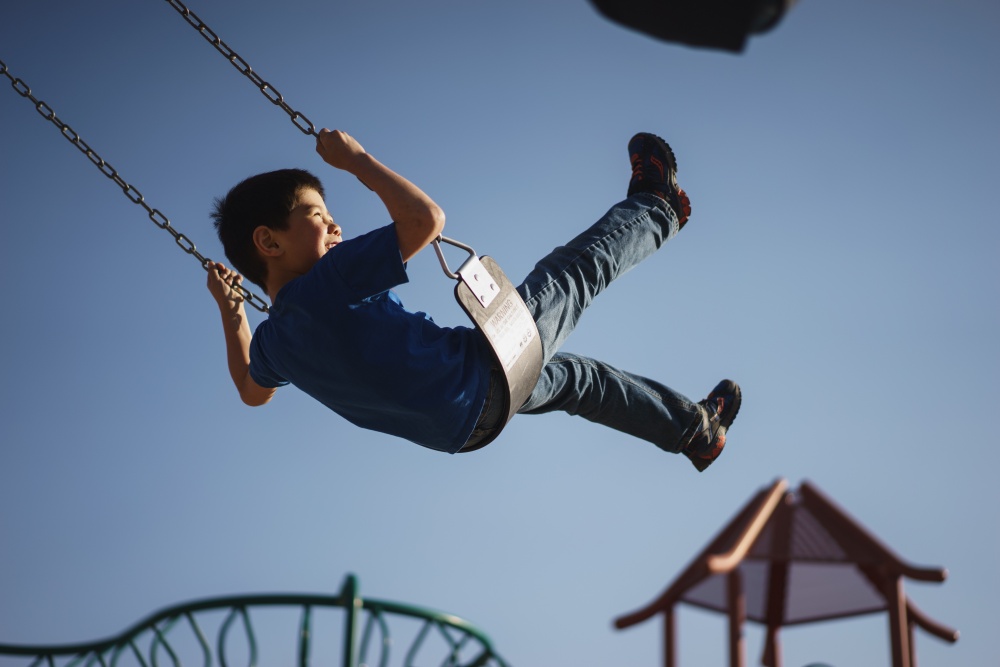Starting preschool is a huge step for kids (and, let’s be honest, parents too). “What should my child know before preschool?” “Is my child really ready for preschool?” These are questions that many parents of young children ask before enrolling their kids in preschool. Here’s what you should know to prepare your little one for the first day of school.
What should my child know before preschool?
If you’re concerned about checking off a list of skills before your child starts preschool, remember that young children develop at different rates. This is why there really isn’t a real list of “must-have” skills for school. Instead of asking “What should my child know before preschool?”, parents should focus on emotionally preparing their kids for school.
While academic skills like knowing letters and numbers are nice to have, they’re not essential, says Teacher Jamie Lantin, the program director of Goodstart Preschool, a progressive preschool in Quezon City. “What is more important for the teachers and staff is the willingness to be around new people and to try unfamiliar experiences,” she adds.
Essential skills: Emotional preparation is key
According to Teacher Jamie, the most important skills that a child should have before preschool are social and emotional skills. The signs that a child is ready for school include:
- Demonstrating independence
- Comfort around both adults and children
- The ability to communicate needs (verbally or non-verbally)
- Showing interest in anything school-related
- Feeling that parents are okay with him/her being in school
Still asking “What should my child know before preschool?” For more information on how to gauge whether or not your child is ready for school, read: 5 Signs That Your Child Is Ready for School
How to prepare your child for school: Tips for parents

Instead of asking “What should my child know before preschool?”, focus on emotionally preparing your kids for school. (Photo by Zun Zun from Pexels)
“Emotional preparation isn’t done a day, a week, or even a month before children go to school,” says Teacher Jamie. “Children who are ’emotionally prepared’ for school are children who are well-adjusted. They have families who encourage them to explore new things every day but are also not overindulged.”
Build self-confidence
Parents can help emotionally prepare their child for school by building their self-confidence and encouraging them to be more independent. Because the first day of school is often the first time kids experience being separated from their parents, it’s a good idea to practice separation in the months leading up to school. Teaching your child simple self-help skills like washing hands and putting shoes will also help him feel more confident about being away from his parents. You can also let your child pick out a backpack or lunchbox to help him get more excited for school.
Act it out
Acting school scenarios out with your child is one fun way to help your child become more enthusiastic about school and better prepare her for what’s to come. You can even visit her school ahead of time to let your little one observe classes. If visiting the preschool during class hours isn’t possible, ask if you can schedule a visit on a weekend. Take her on a tour around the school grounds and explain what the different areas are for, and play with her to help her get comfortable with the new environment.
Communicate support
Keep the lines of communication open. Let him know that even though you’ll be apart for a few hours, he’s got a solid support system to count on. Let him know that it’s normal to be nervous and that he can count on his teachers if he needs any help. And of course, it’s only a matter of time before you’ll be back to pick him up.
Helping a child adjust to preschool: Addressing separation anxiety in preschoolers

Separation anxiety in preschoolers is normal, and helping a child adjust to preschool is a family effort. (Photo by Chinh Le Duc on Unsplash)
If your child is having trouble adjusting to preschool, it may mean that your entire family also needs to adjust your routine. Teacher Jamie shared these tips to help kids get used to the school environment.
1. Introduce only one activity at a time
When introducing new activities to your child’s routine, always do it gradually so he doesn’t get overwhelmed.
“For example, your little boy is going to school for the first time and you’re also thinking of potty-training him with this new routine. That’s a big no-no! As he is trying to familiarize himself with the new school environment (teachers, schedules, friends), having to potty-train him as well will just add more pressure on him.”
2. Don’t overschedule
We all want our kids to have a headstart in life, but filling your child’s schedule with extracurriculars could stress her out.
“Having a lot of other afterschool activities at the start of the school year may hinder your child from really enjoying school because of the tight schedule. Give her time to adjust to the new routine. She may be overspent and tired from too much stuff to do.”
3. Lessen screen time
“Children who have too much screen time, be it through TV or gadgets, are often those who are more withdrawn in school and have no energy because they don’t get enough rest.”
Experts recommend limiting screen time for kids aged 2 to 5 to (at most) one hour of high-quality programming a day. Longer screen time viewing has been linked to developmental delays, so moderation is key.
4. Let your child get enough sleep
“Is he getting enough sleep? Based on pediatricians’ recommendations, preschoolers need between 10 to 14 hours of sleep. If they don’t get this, they may be cranky and out-of-sorts when they go to school.”
Parents, keep smiling!
It’s perfectly normal for kids to experience some degree of separation anxiety on the first few weeks of preschool. While you may be tempted to linger and comfort your child, but this may make the separation even more difficult. As much as possible, keep your goodbyes short and sweet. Brace yourself for some tears — and try not to shed some of your own, at least not in front of your child. Though you may be anxious about leaving your little one behind, try to keep a brave face and remain positive.
Remember that you’re leaving your child in the very capable hands of her preschool teacher, and that it’s only a matter of time before you and your child adjust to your new normal.
(Featured photo by Myles Tan on Unsplash)


Thank you for the comment about being sure that you don’t overload your kids with after school activities. My sister has been looking around for a preschool for her son since he has gotten old enough for that. I bey she could find a great place to take him if she looked around a bit more.